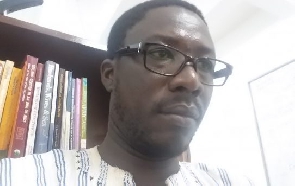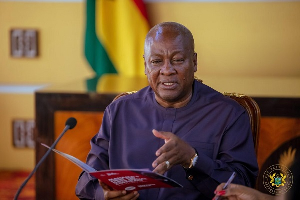A research coordinator at the Centre for Gender Research Advocacy and Documentation of the University of Cape Coast, Dr. Daniel Yaw Fiaveh says the proliferation of aphrodisiacs on the Ghanaian market is due to societal expectations of the male genitalia.
He explains that because in Ghana society expects men to satisfy their female partners as part of the construct of being a real man, men who have aberration with the sexual function of their male genitalia tend to rely on aphrodisiacs for remedy.
This, Dr. Fiaveh says, contributes to the assertion that manhood is threatened.
According to Dr. Fiaveh, the desire for erectile prowess through the use of aphrodisiacs exposes men to sexual harm.
“The penis must erect but must not only have an erection, that erection must be sustained in order to do certain things. One, ability to satisfy a woman two, ability to impregnate a woman, that is, bear a child and then other associated things so this is how it is threatened.”
“So, for example, if you have an aberration in regard to erection, then you must seek remedies to bring back that the fact that for example, the penis is supposed to have an erection. It’s not just enough you must sustain that erection. And this is the proliferation of aphrodisiacs, for example, the extent to which men will go in order to sustain those erections” he continued.
Meanwhile, in a recent study, he indicated that herbal bitters’ use must be understood as a manifestation of hegemonic masculinity and gender power.
He explains that because some men have the notion of manhood hinges around the male genitalia and sexual performance, they think they need help to perform, and herbal bitters play a role.
He further states that the advertisement and use of herbal bitters, therefore, reinforces dominant notions of sex and illuminates men’s insecurities and vulnerabilities.
Dr. Daniel Fiaveh thus notes that there is therefore the need to engage conceptions around masculine ideals in heterosexual relationships via media engagement, regulation/policy, research, and advocacy.
Health News of Saturday, 4 March 2023
Source: atlfmnews.com

















